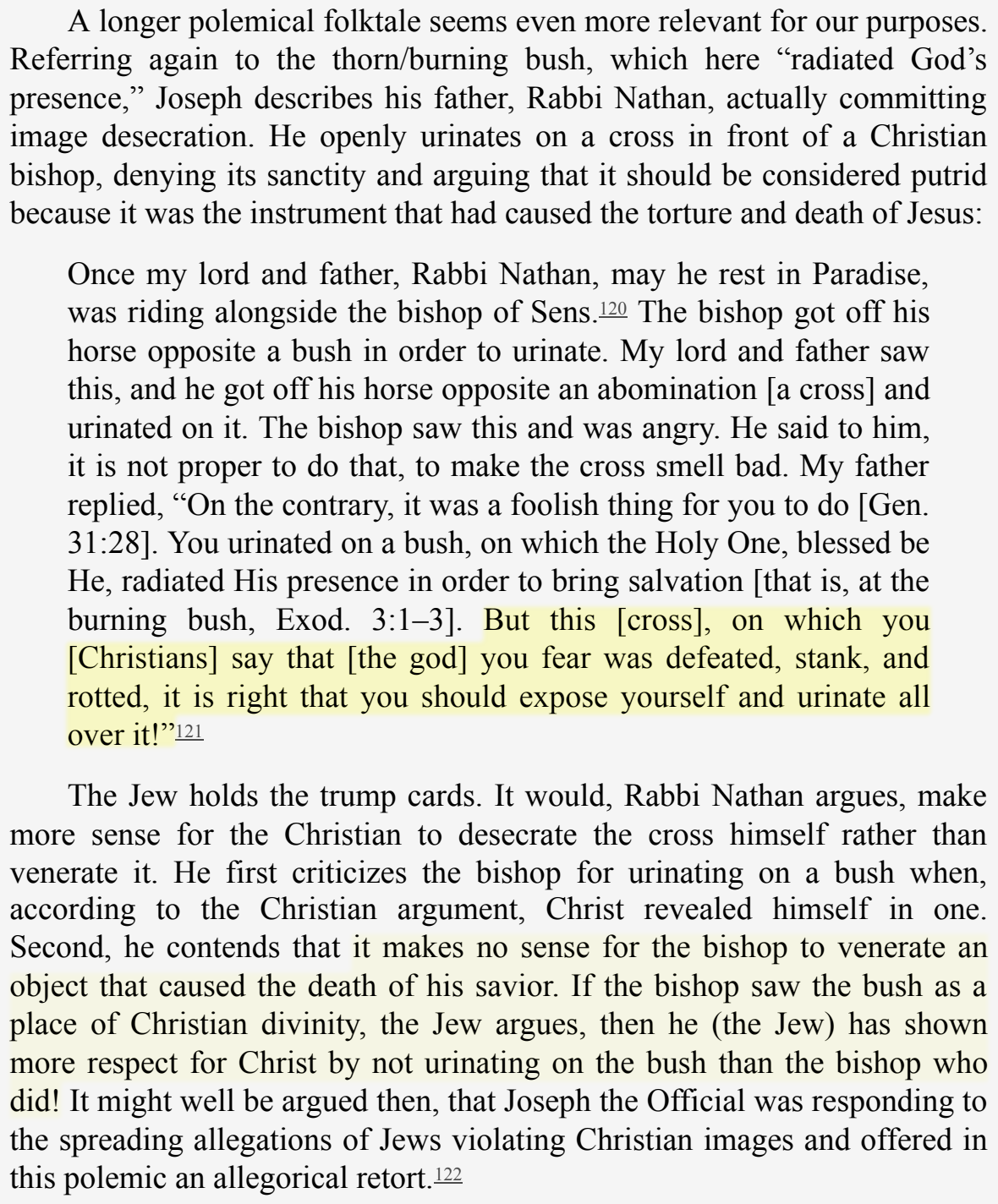Quoting Katherine Aron‐Beller’s Christian Images and Their Jewish Desecrators: The History of an Allegation, 400–1700, chapter 4:
A longer polemical folktale seems even more relevant for our purposes. Referring again to the thorn/burning bush, which here “radiated God’s presence,” Joseph describes his father, Rabbi Nathan, actually committing image desecration. He openly urinates on a cross in front of a Christian bishop, denying its sanctity and arguing that it should be considered putrid because it was the instrument that had caused the torture and death of Jesus:
Once my lord and father, Rabbi Nathan, may he rest in Paradise, was riding alongside the bishop of Sens.¹²⁰ The bishop got off his horse opposite a bush in order to urinate. My lord and father saw this, and he got off his horse opposite an abomination [a cross] and urinated on it. The bishop saw this and was angry. He said to him, it is not proper to do that, to make the cross smell bad. My father replied, “On the contrary, it was a foolish thing for you to do [Gen. 31:28]. You urinated on a bush, on which the Holy One, blessed be He, radiated His presence in order to bring salvation [that is, at the burning bush, Exod. 3:1–3]. But this [cross], on which you [Christians] say that [the god] you fear was defeated, stank, and rotted, it is right that you should expose yourself and urinate all over it!”¹²¹
The Jew holds the trump cards. It would, Rabbi Nathan argues, make more sense for the Christian to desecrate the cross himself rather than venerate it. He first criticizes the bishop for urinating on a bush when, according to the Christian argument, Christ revealed himself in one. Second, he contends that it makes no sense for the bishop to venerate an object that caused the death of his savior. If the bishop saw the bush as a place of Christian divinity, the Jew argues, then he (the Jew) has shown more respect for Christ by not urinating on the bush than the bishop who did! It might well be argued then, that Joseph the Official was responding to the spreading allegations of Jews violating Christian images and offered in this polemic an allegorical retort.¹²²
(Emphasis added.)
